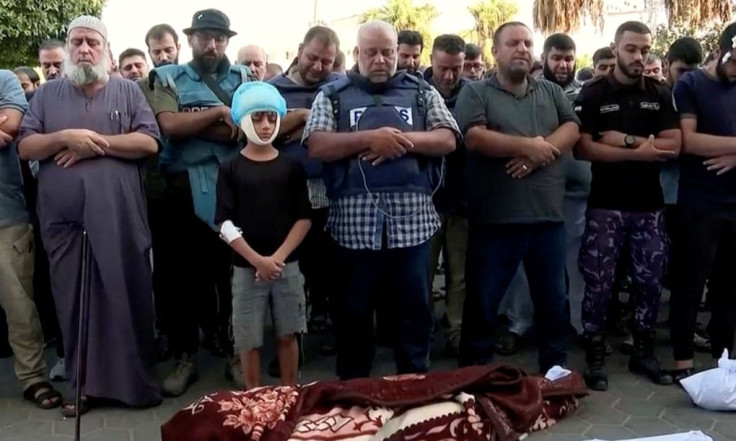
A team of more than 2,200 Journalists and Media Communication Workers have signed a statement that calls for an immediate end to the killing of journalists in Israel, Gaza and Lebanon.
The international journalism community are also urging governments to protect all media workers from any threats that they may be victim to, while covering war events in Israel, Gaza and Lebanon.
The statement was written by For Our Colleagues, a media communications fraternity that uses the slogan 'This Must Stop'.
For Our Colleagues reported that, since Israel started its relentless bombardment of the Gaza Strip in retaliation to Hamas' on-the-ground massacre of Israeli civilians on October 7, at least 63 journalists have been killed in Israel, Gaza and Lebanon.
The Committee to Protect Journalists (CPJ) recognised that the past eight weeks have been the deadliest weeks on record for journalists since it started gathering gates on media workers 30 years ago.
Out of the 63 recorded media deaths, according to For Our Colleagues, more than 56 of the journalists were killed in Gaza.
Four media workers have been killed in Israel. The remaining three journalists were killed as a result of the conflict in Lebanon – Israeli airstrikes in the south of Lebanon.
Issam Abdallah, a Journalist for Reuters was killed by shells fired from an Israeli tank in the south of Lebanon last month.
"We call for the protection of all of our colleagues by all parties," the For Our Colleagues statement said.
"Palestinian journalists reporting in Gaza are doing so amid carnage and destruction, exposing horrors that would otherwise remain invisible to the outside world," the media fraternity added.
With reference to the catastrophic situation in Gaza, where more than 18,600 people have reportedly been killed, the statement noted: "Journalists there have not only lost their homes and family members in the bombings but also face dire living conditions, with limited food, water, and electricity due to a complete siege. Meanwhile, restricted access to Gaza and communication blackouts have suppressed the flow of information."
Israeli strikes killed journalist Abdel Kareem Oudeh in #Gaza on Tuesday. pic.twitter.com/WUb6210H40
— Quds News Network (@QudsNen) December 12, 2023
"In Lebanon, journalists are not safe either," For Our Colleagues said.
Since October 7, the proscribed terrorist group, Hezbollah, has been attacking northern Israel. In response, Israel urged civilians to relocate from the south of Lebanon and started rounds of retaliatory air strikes on the militant group.
In Israel, "journalists are also working amid personal loss and in a climate of worsening freedom", the For Our Colleagues statement continued.
The media fraternity also reported that so far, a staggering 78 media organisations are among the thousands of signatories – including the Institute for Mass Media, Middle East Images Agency, Witness Change and The Everyday Projects.
In the Israel-occupied West Bank, For Our Colleagues reported that the Israeli Defence Force (IDF) has arrested and detained at least 19 journalists after conducting raids on their homes in the Palestinian territory.
In October, Shireen Abu Akleh was killed by the IDF while reporting on events in the Palestinian West Bank. According to a UN report, Akleh had her "right to life" violated by Israel's "lethal force without justification".
"Journalism plays an essential role in documenting history and serving the public interest by exposing realities too often obscured by disinformation and misinformation. Our reporting can reveal the true costs of war," the For Our Colleagues statement added.
The media community went on to call on the international community to uphold the freedom of the press and to "protect the lives and safety of members of the media".
While demanding an end to the killing of journalists and all media workers covering the Israel-Gaza war, For Our Colleagues noted that all those found responsible for the deaths should be held accountable.







